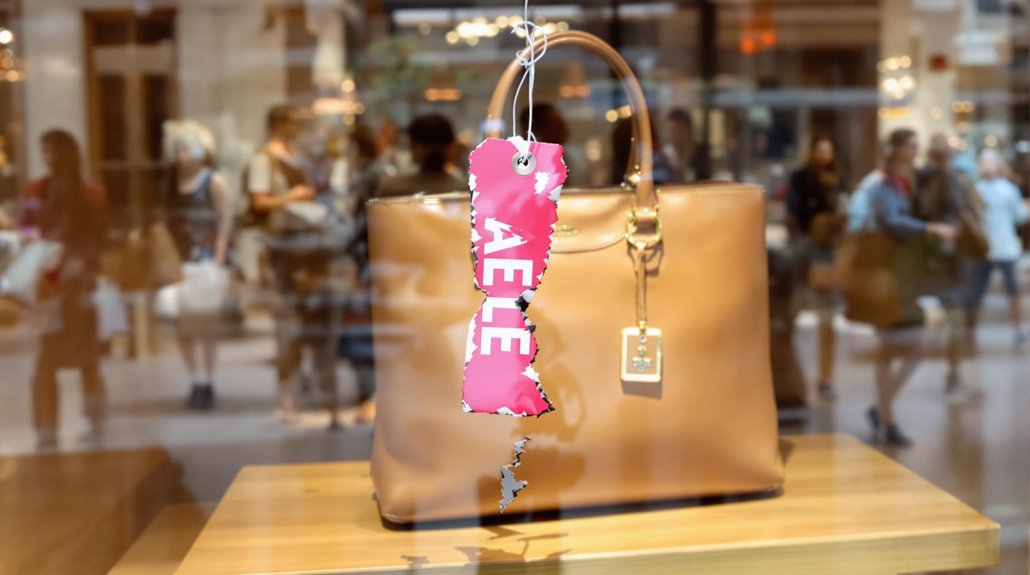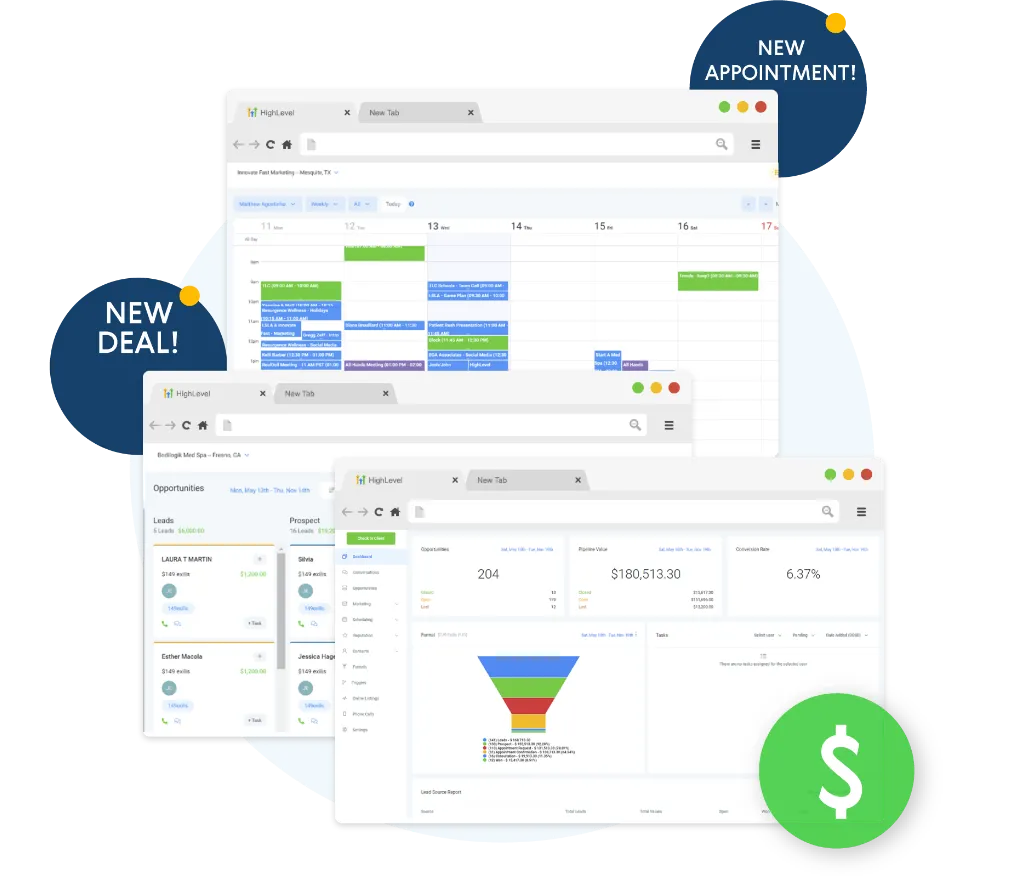We all love a good sale, but cutting prices can hurt your business. When you drop prices too much, you pay more to store items and handle orders. Fake sales can make people stop trusting your store.
Try these better ways to sell:
- Group items together in fun bundles
- Tell people why your stuff is worth the price
- Get to know your customers well
Think about what makes people want to buy. Use fair prices that change with the market. This helps both you and your customers feel good about buying. You'll make more money in the long run without always having to slash prices.
Key Takeaways
Giving too many sales makes people think your stuff is worth less. They won't want to pay full price later.
When stores say "buy now or miss out," it can make people feel rushed. This can make them sad about what they bought.
Stores lose more money on sales than they think. Many costs are easy to miss when adding up the math.
A smart way to sell is to put good items together with ones that don't sell as fast. This helps stores make money while giving buyers a deal.
Being clear about why things cost what they do helps build trust. This works better than having sales all the time.
The Hidden Cost of Sales

Sales costs are more than what you first see. Think of them like an iceberg – there's a lot hiding underwater. Let me show you the costs many people miss.
You need places to keep your stuff. You pay for storage rooms and people to watch your items. When you sell things, you also pay fees to credit card companies. Your sales team gets a cut of what they sell too.
Some costs come from doing work the slow way. Your sales people spend time on paperwork instead of selling. Money gets wasted when your team isn't working smart.
If you sell in stores, you pay extra fees. Stores charge you to put items on their shelves. They also make you pay for good spots where people can see your stuff.
To make more money, you need to find these hidden costs. Then you can fix them and keep more of what you earn.
Deceptive Pricing Strategies
Sneaky pricing tricks can hurt your business. When other stores trick customers with fake prices, you might feel you need to do it too. But being honest about your prices is always better.
You can spot these tricks when you see them. Some stores add hidden fees at checkout. Others show fake "old" prices to make sales look better. They also try to rush you into buying things.
These tricks might work at first. But they make customers stop trusting you. When you show real, clear prices, people come back. They know they can trust you.
This helps your business grow and keeps you out of trouble with the law.
Trust in the Marketplace
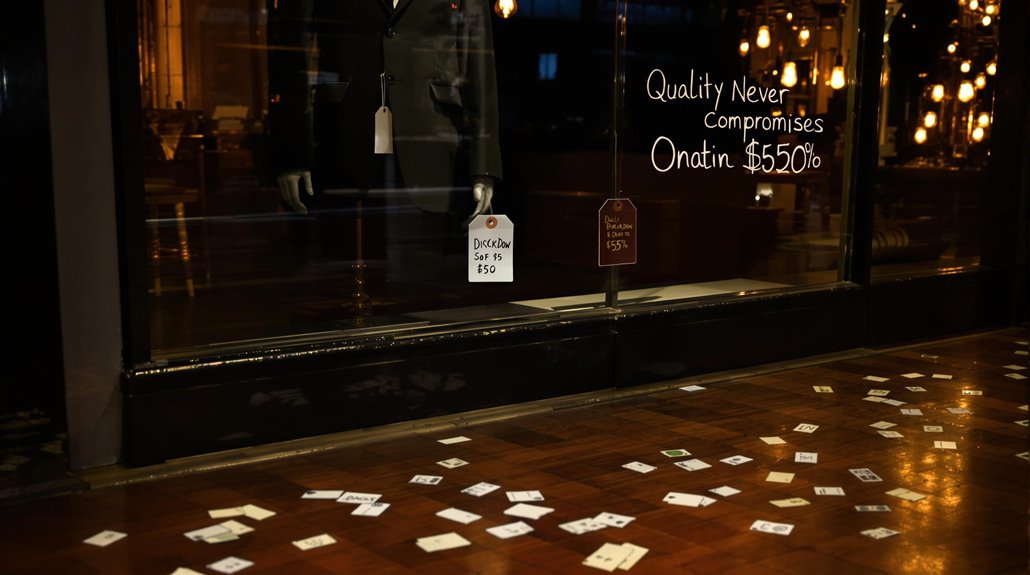
Companies think people trust them a lot, but they don't. Most big bosses say they do a great job making people trust them. But only a few people really do trust them. Workers also don't trust their bosses as much as bosses think they do.
Trust matters a lot in business. When people trust a company, good things happen. People want companies to be real and honest with them. They care about how safe their info is. If a company loses their private info, people will stop buying from them.
When people trust a company, they stick with it. They even pay more for what they buy. The more honest a company is, the better it does.
Building Sustainable Discount Programs
We want to help you create discount programs that are good for Earth and your business. Three things make these programs work well: helping the Earth, making customers happy, and making money.
You can win by giving rewards that help save our planet. Your customers will love this! Team up with other companies that care about Earth. Give out rewards that don't make trash.
Use rewards on phones and computers instead of paper or plastic ones. This helps keep Earth clean. Keep track of how much you help the Earth – your customers want to know! You can save money and make friends with people who shop at your store.
Make deals that help people be nice to Earth. Let people pay early to save more and waste less. Tell your customers why being green is good. This helps them stick with you and care more about Earth too.
Customer Psychology Behind Discounts
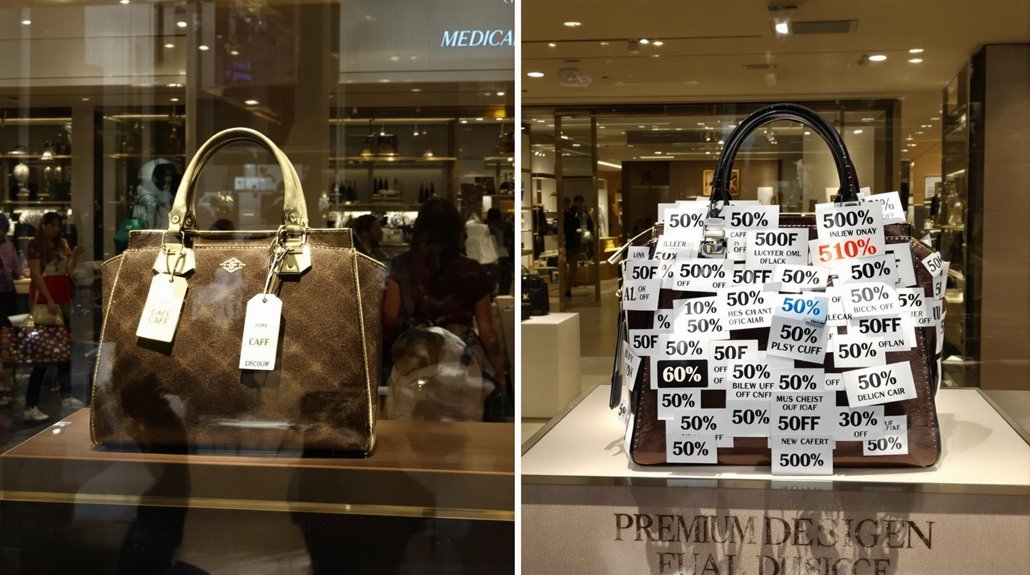
People get excited when they see discounts! When we find things on sale, our minds start racing. We think about if we really need it, but we also worry about missing out on a good deal.
Sales that end soon make us feel like we've to buy quickly. This can make us buy things without thinking it through. It helps to know these feelings are normal.
When we know why we feel rushed to buy things, we can make better choices. We can spot real deals and avoid buying stuff just because it's on sale.
Mind Games Behind Sales
Shopping tricks make us want to spend money. Stores know how our minds work and use this to get us to buy more.
When we see a sale, our brain gets excited. We think we must buy now or we'll miss out. Here's what stores do:
| Store Trick | What They Do | How to Be Smart |
|---|---|---|
| Big Prices First | Show high prices to make sales look better | Look up real prices |
| People Power | Tell us others are buying | Make up your own mind |
| Limited Time | Say things will run out soon | Check if it's true |
| Fear of Loss | Make us worry about missing deals | Think if you need it |
| Try Before You Buy | Let us touch or test items | Wait before buying |
To shop well, think about what you need, not just what's on sale. When stores add free stuff to deals, ask if you really want those extras. Take time to think before you buy.
Remember: A good price on something you don't need is still a waste of money.
Impulse vs. Rational Decisions
Your brain fights with itself when you see sales. One part gets excited about deals that won't last long. The other part wants to think hard about if you really need it.
Everyone feels this way when they shop. It's like having a small angel and devil on each shoulder. The devil says "Buy it now!" while the angel says "Wait and think."
When you shop, both sides of your brain work at once. You might feel happy about a big sale, but you also check prices and what other people say. This is normal.
The key is to notice when you want to buy something just because it feels good. Take a breath. Ask yourself if you truly need it, even with the discount.
Struggling to hit your sales goals?
Stop losing leads and wasting time on manual tasks. Automate your sales process to close deals faster and grow your business effortlessly.
Discover how to transform your sales today!
Fear of Missing Out
We all hate missing out on good deals. It feels bad when others get something special and we don't. This happens a lot when we see friends getting cool stuff on social media.
Stores know we want to grab deals fast. They tell us "Buy now!" or "Almost gone!" to make us shop quickly. This works well to sell things right away.
Smart stores are honest about their deals. They tell us when sales start and end. This way, we still want to buy from them later.
They make us feel good about shopping, not worried about missing out.
Value Vs Price Wars
When you sell something special, people will pay more for it. Cutting prices to beat others only hurts everyone in the end. The best way to grow your business is to show why you're worth more.
Here's what you can do to stay strong and make good money:
- Make your products better and different from others
- Be extra nice to your customers so they like you more
- Work with other good businesses to offer more value
These simple steps help you stand out without having to lower your prices. Your customers will be happy to pay for something that's truly worth it.
Strategic Bundling That Works

Let's make our bundles work better!
Mix your best items with other products that go well together – just like peanut butter and jelly.
Find the items that sell fast and match them with those that sell slowly. This helps you sell more without dropping prices.
Look at what sells best and put good deals together. Your customers will be happy to buy these smart bundles, and you'll clear your shelves faster.
Smart Bundling Price Strategies
Selling things together as a bundle helps you make more money and makes customers happy. When you set good prices, people see more value in what you're buying.
Make your bundles cost less than buying things one by one. This way, people save money and you still make a profit.
Try these simple ways to sell bundles:
- Let people buy items alone or in bundles
- Change prices based on what's selling well
- Put popular items with things that go well together
Look at what other stores charge. Watch what your customers like to buy. This helps you make better bundles that people want to buy and helps your business grow.
Value-Building Bundle Components
We want to help you make better product bundles for your customers. When you put the right items together, people get more value and find it easier to buy.
Try matching your best-selling products with ones that don't sell as well. This helps you sell more of everything.
You can sell items only in bundles or both in bundles and by themselves. Think about what makes your bundles special beyond just the price. Make sure to tell people how easy and useful your bundles are.
Keep an eye on what your customers like to buy in bundles. This will help you make even better ones.
Always tell people exactly what they get in each bundle. When you show how your bundles make life easier, more people will want to try new things from your shop.
Protecting Brand Through Smart Pricing
Prices tell a story about your brand. Good pricing helps people trust what you sell and keeps your business healthy.
To protect your brand, you need three simple tools:
- Tools that change prices when the market changes
- Clear rules about pricing that work everywhere you sell
- Smart systems that help you see what prices will work best
Think of pricing like a shield. It keeps your brand safe and strong. When you watch prices closely and fix them when needed, you stay in control.
This stops others from hurting your brand with price fights or messy pricing.
Good pricing does more than just set what things cost. It helps people know your brand is worth their money.
When you price things right, customers stick with you and trust what you sell.
Ethics in Modern Sales

Sales should be honest and fair. When you treat people right, they trust your brand more.
Today's buyers care about doing what's right, so selling with honesty helps you win.
Tell people the truth about what you sell. Share good points and bad points about your items. Make prices clear. Help your sales team learn ways to teach buyers about products instead of pushing them to buy.
Stand out by fixing real problems for your buyers. Don't just think about making money. Keep their private info safe. Don't push too hard when selling. Listen to what buyers say about how you can do better.
When you do these things, people will trust you more. They'll want to keep buying from you for a long time.
Long-Term Customer Relationships
Building trust with your customers means caring about them, not just giving them deals. Most people stick around when you treat them well and help solve their problems. Your regular customers become friends who trust you. They end up spending more money with you and tell others about your business.
When you get to know what each customer likes and help them before they ask, they stay with you longer. This makes your business grow and do better.
It's like making a good friend – the more you care, the stronger your bond gets.
Building Trust Through Value
Trust is like building a strong friendship in sales. When you show you care and help solve problems, people trust you more than if you just talk about prices.
Being honest and really caring about your customers helps create lasting bonds.
Here's what you can do:
- Listen to what your customers need and find ways to help them
- Always tell the truth and don't just push for quick deals
- Do what you say you'll do and keep in touch
When you focus on being helpful and honest, your customers will stop worrying so much about prices.
They'll see you as someone who can help them fix their problems. You become more than just someone trying to sell them stuff – you become a friend they can count on.
Sustained Loyalty Beyond Deals
We want all our customers to feel special, not just when we've sales. When stores treat people well all year round, these happy customers spend more money. Making each person feel unique helps them enjoy shopping with us more.
Good stores do more than sell things. They help people learn and make friends with others who like the same stuff. When you buy something, they check on you to see if you like it. They care about what you need.
Most people stop buying from stores that treat them badly. That's why great stores work hard to help each person. They try to know what you want before you ask. They fix your problems in ways that work just for you.
The best way to keep customers happy is to make them feel like part of a big group of friends who all love your store.
Balancing Profits With Promotions
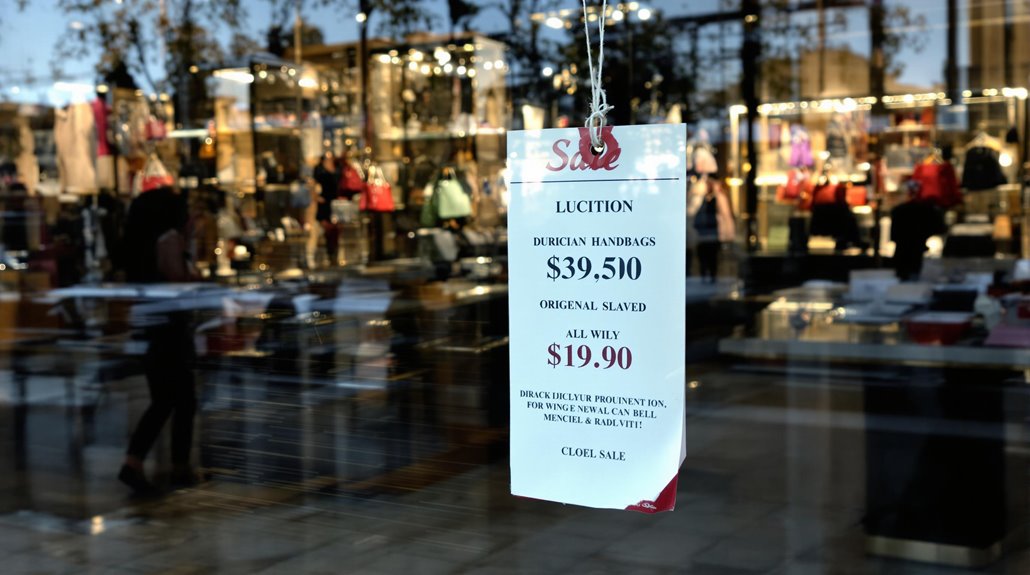
Making money while running sales is tricky. You want your business to grow, but you also need to make enough profit to stay open.
To run good sales that work:
- Watch what your customers buy and change prices when you need to
- Pick the right times to offer deals that will bring in more sales
- Give better prices when people buy more things at once
This helps you make money while keeping your customers happy. They get good deals, and you keep your business strong.
Conclusion
We all love a good deal at the store. Most shops cut their prices to make more sales. But this can hurt their business in the long run. Only a few stores make enough money when they drop prices too much.
To make smart deals that work, stores need to:
- Look at what their best shoppers buy
- Make deals that help both the store and customer
- Add extras that make things worth more
- Keep track of how well deals work
This way, stores can give good prices while staying strong and healthy.

